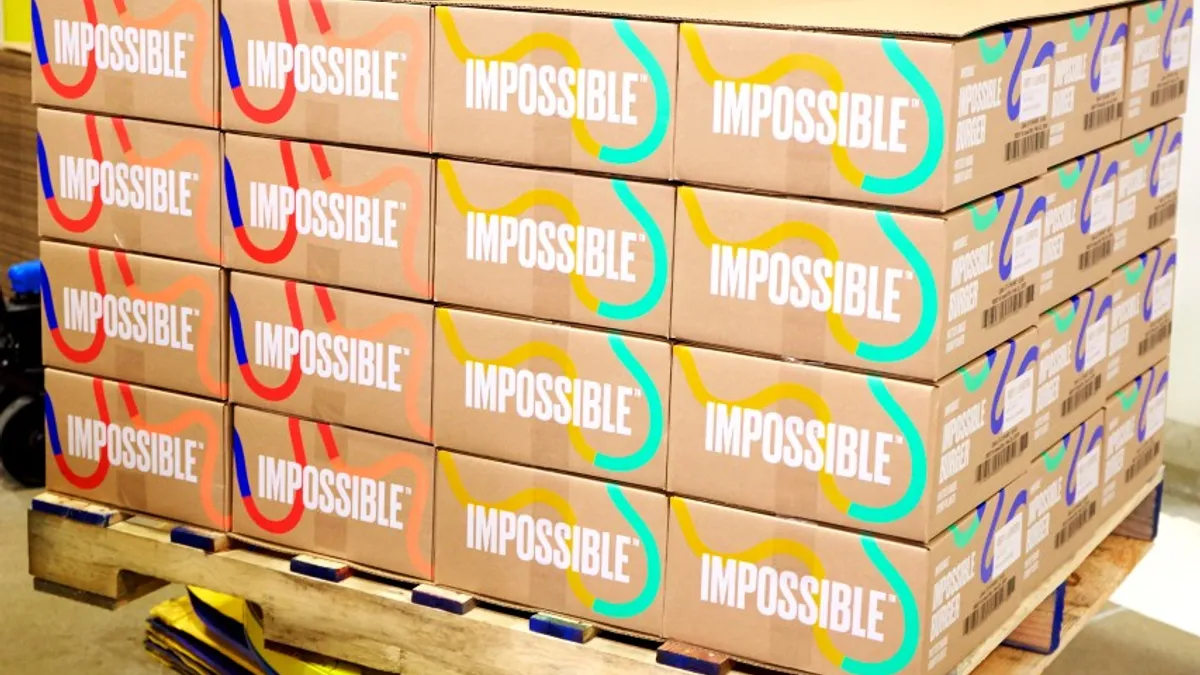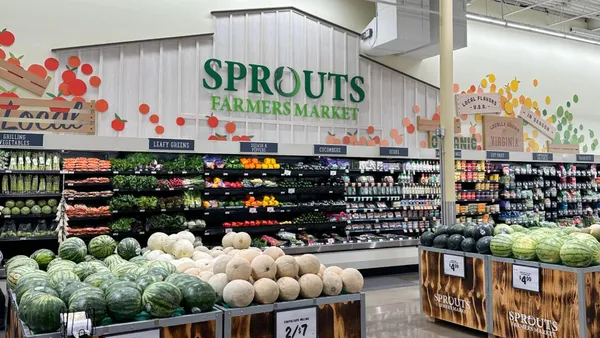Dive Brief:
- In honor of Earth Day, Impossible Foods is capitalizing on the tiny food trend on social media to showcase its smaller carbon footprint compared to traditional animal meat production, according to information shared with Marketing Dive.
- The “Mini Impact Kitchen” campaign was created with Deloitte Digital and features creators specializing in mini food. The #minifood trend shows creators making miniature food on small kitchen equipment, usually in an aesthetic manner. The content and campaign will go live on Earth Day across TikTok, Instagram and Twitter.
- The brand will also run a 1-inch by 1-inch ad in the New York Times, the smallest format the paper offers, to further drive home the message that small actions like switching to a meat alternative can have a big impact on the planet when done widely.
Dive Insight:
This Earth Day, Impossible Foods is downsizing its advertising to highlight its small environmental impact compared to traditional meat production. According to the company, an Impossible Burger generates 91% less emissions than a beef burger. The dramatically smaller carbon footprint of imitation meat compared to real meat has long been a selling point for such companies, especially as consumers become more environmentally conscious.
Videos with the hashtag #minifood have 2.8 billion views on TikTok at the time of writing, pointing to the popularity of the trend on social media. Impossible Foods is leveraging this interest and translating it for messaging that cooking with meat alternatives can be just as aesthetically pleasing and delicious as cooking with real meat, while also highlighting the product’s relatively small carbon footprint by comparison.
The company is also hoping the campaign has the power to shift consumer perceptions around meat alternatives and encourage shoppers to embrace such products as a way to lower their personal environmental impact. According to a Unilever Study cited in the press release, 83% of consumers say Instagram and TikTok help them be greener at home. That number increases to 86% for consumers between the ages of 18 and 34.
Impossible Foods has undergone tremendous growth in recent years. In 2022, the company experienced a greater than 50% growth in dollar sales. In 2023, the company hired Sherene Jagla as its first chief demand officer in order to help continue to drive growth.
The campaign arrives as some enthusiasm for meat alternatives has been tempered by shoppers looking to keep their grocery bills in line during a period of rapid inflation.
Impossible Foods has a history of Earth Day advertising. In 2022, it launched its “Eat Meat to Save the Planet” campaign to encourage consumers to eat more imitation meat. In 2021, it launched a youth-forward campaign known as “The Birds and the Trees” to supply younger consumers with the tools needed to talk to their parents about the impact of climate change. In 2020, Impossible Foods unveiled the “Impossible Impact Calculator,” which showed audiences how they can lower their footprint by switching to Impossible products.













